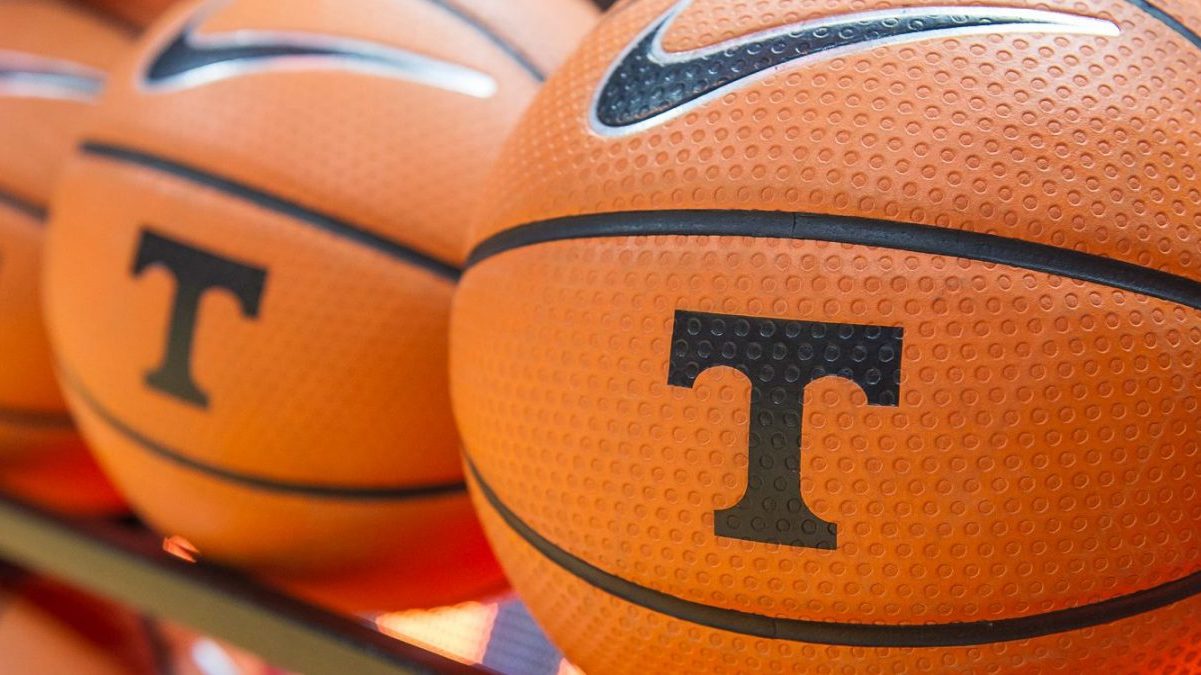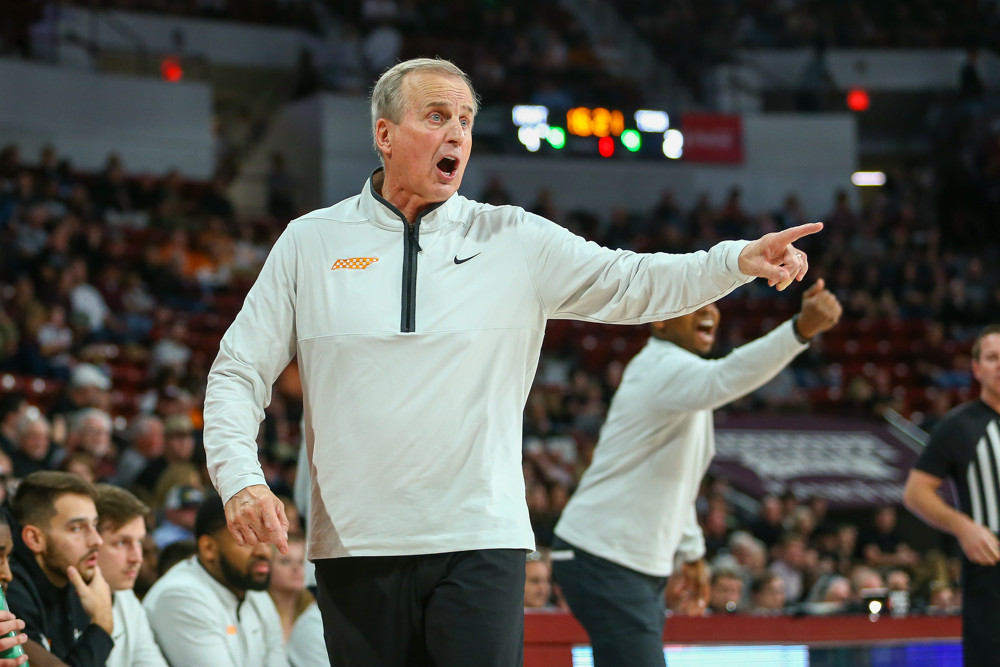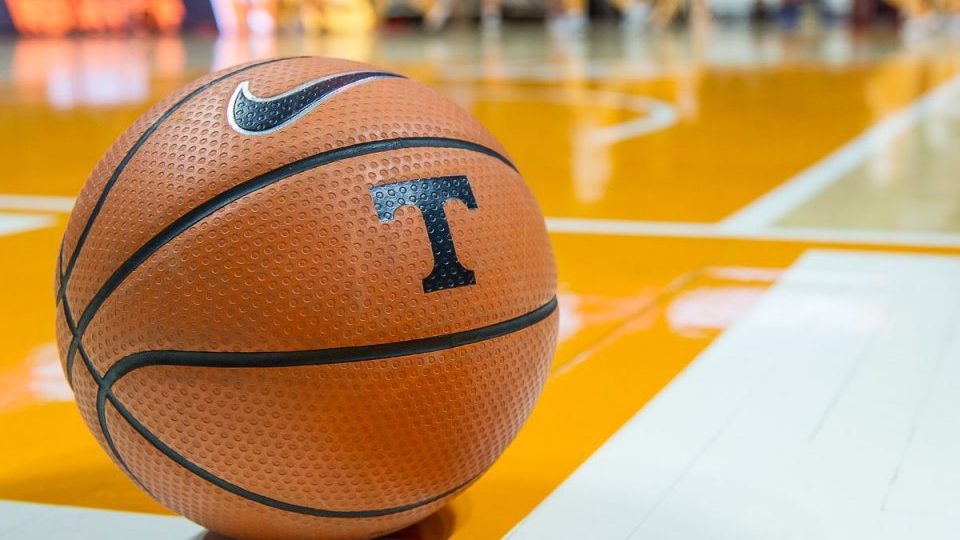The transfer portal is all the rage nowadays in college sports, especially in basketball. I think fans follow transfers more closely than they do recruiting now, at least based off the interactions and discussion I’ve seen online.
In this era of player freedom, the impact of transfers is under even more scrutiny than ever before. That seems especially true for Tennessee and a fanbase that hasn’t seen a true major-impact transfer in…well, quite some time.
This offseason, Rick Barnes has done something he’s never done at Tennessee: He’s brought in more than one transfer who can play immediately. USC Upstate guard Jordan Gainey, Harvard wing/forward Chris Ledlum, and Northern Colorado guard Dalton Knecht have all three announced their intentions to transfer to the Vols, marking the first time Barnes has added multiple transfers in the same offseason with the expectation of them playing the following season. Prior to the 2019-20 campaign, Barnes and his staff landed Victor Bailey Jr. from Oregon and Uros Plavsic from Arizona State, but Bailey redshirted his first year on campus, and Plavsic didn’t get to play till midseason as he fought for eligibility.
How Gainey, Ledlum, and Knecht will perform for the Vols remains to be seen, but there’s hope that all three can fill holes on Tennessee’s roster for the upcoming season, particularly Knecht.
But based on the Vols’ recent history with transfers, it’s understandable if fans’ expectations are low for UT’s newest additions.
I looked back over the last 20 years to see what kind of impact transfers have made for Tennessee’s men’s basketball program. I looked exclusively at transfers from one college to another, whether they were multi-year transfers or grad transfers. I didn’t include JUCO transfers or walk-on transfers just to simplify things, so someone like Josh Bone wasn’t included in this research.
The results backed up what I suspected: Tennessee has had some really bad luck with transfers over the last couple decades, and it’s only been more glaring over the last 5-8 years.
Starting with Jemere Hendrix in 2003 all the way to Tyreke Key this past season, the list of transfers into Tennessee’s basketball program is a rollercoaster of production. For the first decade or so of this millennium, the Vols actually had a pretty good run with who they brought in as transfers. Scooter McFadgon was an exceptional scorer on some bad Tennessee teams, and Andre Patterson was a solid contributor for his two seasons, especially in his one year under Bruce Pearl.
Speaking of Pearl, he also brought in J.P. Prince, who was instrumental in Tennessee’s 2010 Elite Eight run and was a consistent third option on the offensive end. He also nabbed Tyler Smith, who was on his way to possibly being the best transfer in Vols’ history until he was kicked off the team after his arrest. Pearl also got Jeronne Maymon to come to Tennessee from Marquette, but Maymon’s impact wasn’t felt until Cuonzo Martin took over as head coach. Maymon and Jarnell Stokes were a one-two punch in the post for multiple years, and both gobbled up rebounds like machines.
Martin also reeled in Antonio Barton from Memphis, and he was a serviceable point guard who played a larger role than fans may remember in that 2013-14 season when UT went on a surprising Sweet Sixteen run.
After Barton, though, things have become…less memorable on the transfer front.
Donnie Tyndall had to completely remake Tennessee’s roster in his one and only season, and his two transfers amounted to very little on the court. Dominic Woodson played in a handful of games before deciding to leave the program, and Ian Chiles barely got to play before suffering a season-ending injury.
Then came Rick Barnes.
Barnes’ luck with transfers at Tennessee has been poor, to say the least. In Barnes’ first few years at the helm, he brought in Lew Evans, who wasn’t much more than a depth piece, and James Daniel III, who was a good three-point shooter but never could return to form from his time at Howard.
Then came Uros Plavsic and Victory Bailey Jr. in the same offseason. Plavsic is still on Tennessee’s roster as of now and has actually played more games than any other incoming transfer at Tennessee over the last 20 years. But his play is probably best described as “sporadic,” and he has failed to be as impressive on the boards as most would like. As for Bailey, his first season after redshirting was pretty solid, averaging almost nine points a game while connecting on almost 34% of his threes. His production fell off a cliff in his second season, though, and he left the program and followed Kim English to George Mason after that.
Following those two additions was E.J. Anosike, who might be the most disappointing transfer for the Vols in the last 20 years, if not longer. Justin Powell transferred from Auburn the next offseason and showed some promise as a three-point shooter, but he never saw a lot of minutes and didn’t thrive in Knoxville.
And that brings us to Tyreke Key, who transferred from Indiana State for this past season.
This may surprise you, but Key may actually be Barnes’ best transfer addition to date at Tennessee. Which says more about Barnes’ luck with transfers than it does Key’s production with the Vols.
Now, unlike a lot of people, I’m not going to sit here and trash Key. I think he got a lot of undue hate tossed his way, and while his play deserved criticism, I believe some went over the top with it and either didn’t know, forgot, or willfully ignored the fact that he was coming off shoulder surgery and missed the entire 2021-22 season at Indiana State and was asked to play out of position a good chunk of this past season due to injuries to Tennessee’s roster.
Anyway.
Key finished the year averaging just over eight points, 2.5 rebounds, and 1.3 assists while making 33.3% of his threes. Nothing stellar there at all, but he made some good contributions, albeit with a lot of inconsistency.
The fact that Key is probably Tennessee’s best transfer in the last 9-10 years says a lot about the production the Vols have gotten from transfers recently, though. And it makes sense why fans would question just how good a transfer can be at Tennessee under Barnes.
Personally, I think someone like Ledlum is the exact type of player who can thrive with Barnes, even though there definitely will be a regression with his numbers considering he’s jumping from the Ivy League to the SEC. And I think Knecht will play a vital role on the team next season and could be the perfect versatile scoring threat the Vols have lacked the last few years.
Only time will tell if my suspicions about Ledlum and Knecht are true, and both have a lot of years’ worth of bad transfer juju to overcome for fans to get more on board.
Both of those players, and Gainey, all have something in common: They’re transferring to Tennessee from a “smaller” school in a non-high major conference. That’s been the trend under Barnes, too. He’s mainly grabbed players from mid-majors to come to Knoxville, and only three of the transfers he’s brought in have been from other Power Six programs (Uros Plavsic, Victor Bailey Jr., and Justin Powell).
From the 2003-04 season to the 2014-15 season, only two of Tennessee’s 10 transfers were from mid-major schools. The Vols scored three scholarship transfers from Memphis in that span (Scooter McFadgon, Antonio Barton, and Dominic Woodson), and the other five were from other Power Six conferences. Only John Fields (UNC Wilmington) and Ian Chiles (IUPUI) were from smaller schools.
All that isn’t to say that you have to come from a Power Six conference to have success at Tennessee as a transfer, but so far those have been the most accomplished transfers into Knoxville this millennium.
Here’s a full look at the stats of Tennessee’s transfers over the last 20 years:
| Player | Prev School | Games | Mins | PPG | RPG | APG | FG% | 3FG% | FT% |
| Jemere Hendrix | Clemson | 57 | 18.4 | 4.8 | 4.5 | 0.4 | 51.8% | N/A | 68.4% |
| Scooter McFadgon | Memphis | 54 | 30.8 | 16.0 | 4.2 | 1.9 | 39.3% | 35.9% | 87.9% |
| Andre Patterson | UCLA | 61 | 24.9 | 8.4 | 6.4 | 1.4 | 51.6% | 22.2% | 63.4% |
| JP Prince | Arizona | 95 | 23.7 | 9.4 | 3.7 | 2.7 | 53.6% | 22.5% | 60.4% |
| Tyler Smith | Iowa | 82 | 29.8 | 14.9 | 6.0 | 3.4 | 49.0% | 30.9% | 73.4% |
| John Fields | UNC Wilmington | 34 | 11.6 | 2.6 | 3.0 | 0.2 | 58.7% | N/A | 46.4% |
| Jeronne Maymon | Marquette | 84 | 25.0 | 9.7 | 7.2 | 1.0 | 54.2% | N/A | 64.6% |
| Antonio Barton | Memphis | 37 | 25.1 | 7.5 | 2.2 | 2.1 | 37.3% | 34.0% | 68.9% |
| Dominic Woodson | Memphis | 4 | 12.0 | 3.5 | 2.0 | 0.3 | 50.0% | N/A | 33.3% |
| Ian Chiles | IUPUI | 3 | 4.7 | 0.7 | 0.7 | 0.3 | 50.0% | N/A | N/A |
| Lew Evans | Utah State | 32 | 14.8 | 3.4 | 2.8 | 0.9 | 34.5% | 29.5% | 68.5% |
| James Daniel III | Howard | 35 | 19.7 | 5.6 | 1.4 | 2.8 | 36.6% | 37.2% | 72.7% |
| Uros Plavsic | Arizona State | 101 | 11.3 | 3.7 | 2.8 | 0.5 | 57.3% | N/A | 47.0% |
| Victor Bailey Jr. | Oregon | 61 | 16.3 | 6.2 | 1.4 | 1.0 | 38.5% | 30.4% | 77.5% |
| EJ Anosike | Sacred Heart | 22 | 8.5 | 1.7 | 1.9 | 0.3 | 34.2% | N/A | 60% |
| Justin Powell | Auburn | 30 | 14.1 | 3.7 | 1.5 | 0.7 | 39.2% | 38.1% | 73.3% |
| Tyreke Key | Indiana State | 33 | 24.4 | 8.2 | 2.5 | 1.3 | 34.0% | 33.3% | 74.1% |






